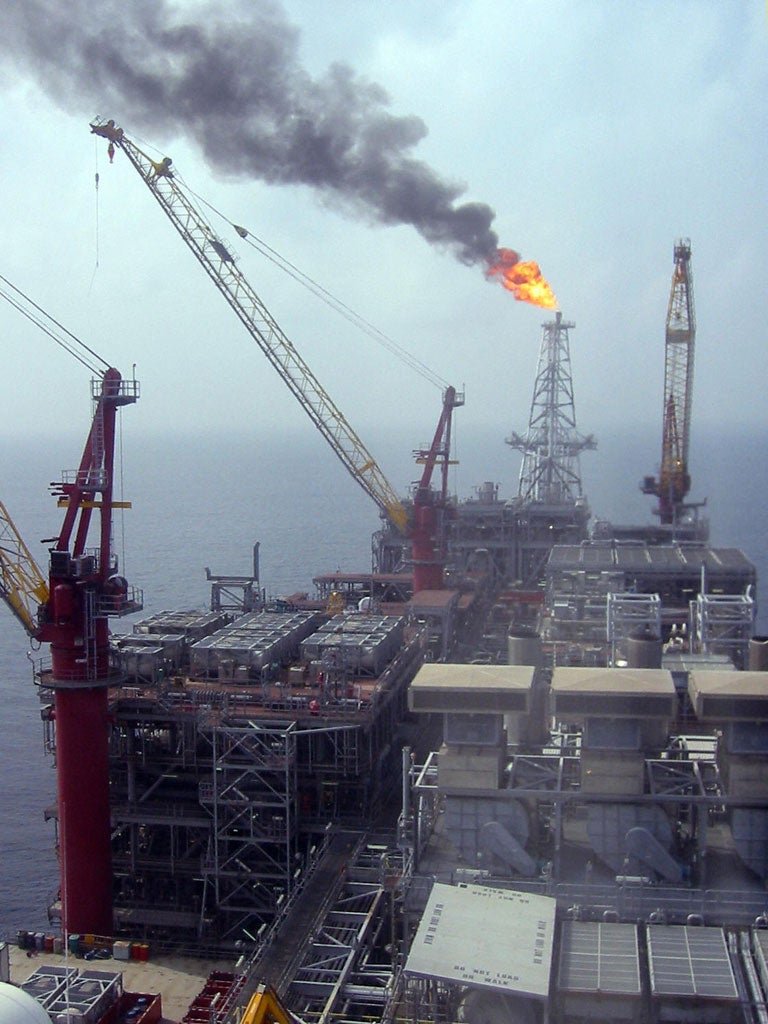The expats: 'No bills, no everyday dramas' – until the unthinkable happens
Foreign workers in Africa earn good money and have all they need, but the risks are high

Your support helps us to tell the story
From reproductive rights to climate change to Big Tech, The Independent is on the ground when the story is developing. Whether it's investigating the financials of Elon Musk's pro-Trump PAC or producing our latest documentary, 'The A Word', which shines a light on the American women fighting for reproductive rights, we know how important it is to parse out the facts from the messaging.
At such a critical moment in US history, we need reporters on the ground. Your donation allows us to keep sending journalists to speak to both sides of the story.
The Independent is trusted by Americans across the entire political spectrum. And unlike many other quality news outlets, we choose not to lock Americans out of our reporting and analysis with paywalls. We believe quality journalism should be available to everyone, paid for by those who can afford it.
Your support makes all the difference.Western workers are the civilian mercenaries of Africa. They are easy to spot in the continent's airports. Generally white and casually dressed, they travel in groups of three or four. They often seem to speak with Scottish accents and have little or no hand luggage, except possibly an iPad. And they are such seasoned travellers that they are generally the last to leave the bar when the flight is called.
"You do it for the money and only for a few years,'' said a Scottish welder I met recently at Luanda airport in Angola. All he knew of the country was the international airport and a hotel nearby where he had stayed while waiting for his helicopter transfer to the rig.
He works a 30/30 schedule: non-stop, 12 hours a day for 30 days, followed by a month off for £40,000 per year. That is the favoured work rhythm of employed oil workers who are a long way from home. Others work short stints for different companies as freelance contractors.
The untrained, entry-level staff, with no qualifications can expect to earn about £100 a day, but skilled staff can expect much more: senior construction project managers can pocket as much as £150,000 a year for their work, often much more than they could earn at home. In Nigeria, a project manager can take home £65,000 for helping to build hotels, according to one careers website yesterday.
The welder, a single man, said the best and worst aspect of his work was the monotony: jobs are narrowly defined for safety reasons but there also few surprises: "No bills to pay, no everyday dramas to deal with. They are waiting for me back home,'' he said. He was travelling back to Britain with a pipe fitter, a mechanic and a scaffolder, all working the same shift pattern.
Sites housing hundreds of expat specialists have everything: internet, swimming pool, gym and satellite television. Accommodation is five-star and is kept functioning by an army of housekeepers, plumbers and galley hands.
The downside is that the work takes place in remote and often dangerous regions where they risk being kidnapped or worse, as this week's events showed.
The companies involved are expected to provide security for their workers, but as message boards suggested yesterday, some areas of Africa, particularly Nigeria, remain highly dangerous for expat workers.
"I spent three months in Somalia two years ago and if u [sic] think Iraq is dangerous Somalia is much worse... The Niger Delta isn't much better. Having worked a lot in Africa I would advise u [sic] to think very carefully about going there at all," said one blogger.
Join our commenting forum
Join thought-provoking conversations, follow other Independent readers and see their replies
Comments